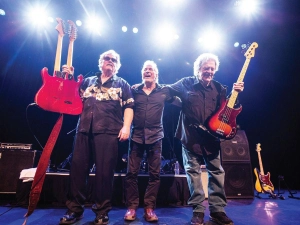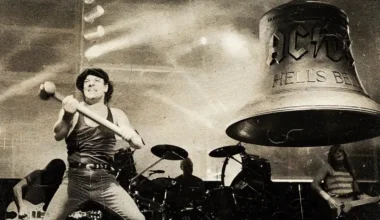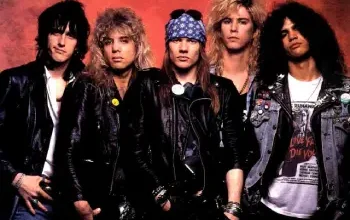No one was more complicated than Rush when the first waves of progressive music emerged. Even with only three members, the Canadian power trio created a massive sound on their recordings that no other band could match. Geddy Lee admits to feeling less creative as the years go by, even though he could play the bass like no one else in the rock arena.

However, when the band first formed, modern music was on the verge of a dramatic genre revolution. Most fans were sick of hearing Emerson, Lake, and Palmer on the radio. The punk generation helped put everything back to square one. They did this with performers who could only play basics composing wonderful songs.
While Rush did not fit the classic punk mold, they were delighted to incorporate new wave elements into their sound during the 1980s. Geddy Lee was known to spend as much time on the keyboard as he did on the bass. The bass of songs like Moving Pictures established a distinct sound texture that would characterize their sound moving forward.
However, by the 1990s, it was clear that Rush’s next phase was starting to look old. After albums like Presto, the group’s normal originality decreased. It resulted in songs that sounded outdated before it had even hit store shelves. With the rise of grunge, the rock world was set for another huge transformation. The transformation was when they began returning to basics with songs like Counterparts and Test For Echo.
Although Lee admired the majority of the sounds produced by Soundgarden and Nirvana, the death of Kurt Cobain threw a sad shadow over the remainder of the scene. Lee had begun to lose trust in where modern music might go by the end of the 1990s. Until he heard one band from England.
Following Nirvana’s fall, Radiohead continued where they left off on OK Computer. They deliver a stunning blend of alternative flair, traditional rock lyricism, and some of the decade’s worst sonic diversions. While Lee wasn’t paying attention to most new music at the time, hearing them for the first time gave him fresh faith in the future generation of rock.
Upon first hearing the band, Lee quickly found himself transported back to the early days of progressive rock. He said to The Quietus, “To me, Radiohead carried on the tradition of bands like Yes.” They are constantly daring and difficult, and yet they have always been one step ahead of the competition. I like how they combine old and new elements, such as contemporary rhythms and orchestration.”
Lee admires the band’s experimental side, but it is never at the price of the song. He stated, “They still have great songs at the heart of it. Particularly on OK Computer, which completely captivated me and gave me hope for the future. Excellent music in every sense.”
Radiohead, like Rush, has never been one to rest on their laurels, strengthening things down on Kid A and then returning to massive guitars on albums like In Rainbows. Although Radiohead does not identify as a typical prog-rock band, the spirit of their music is an example of musical evolution at its best.








